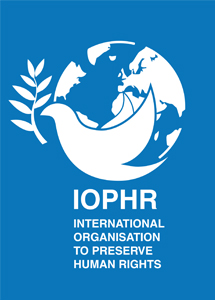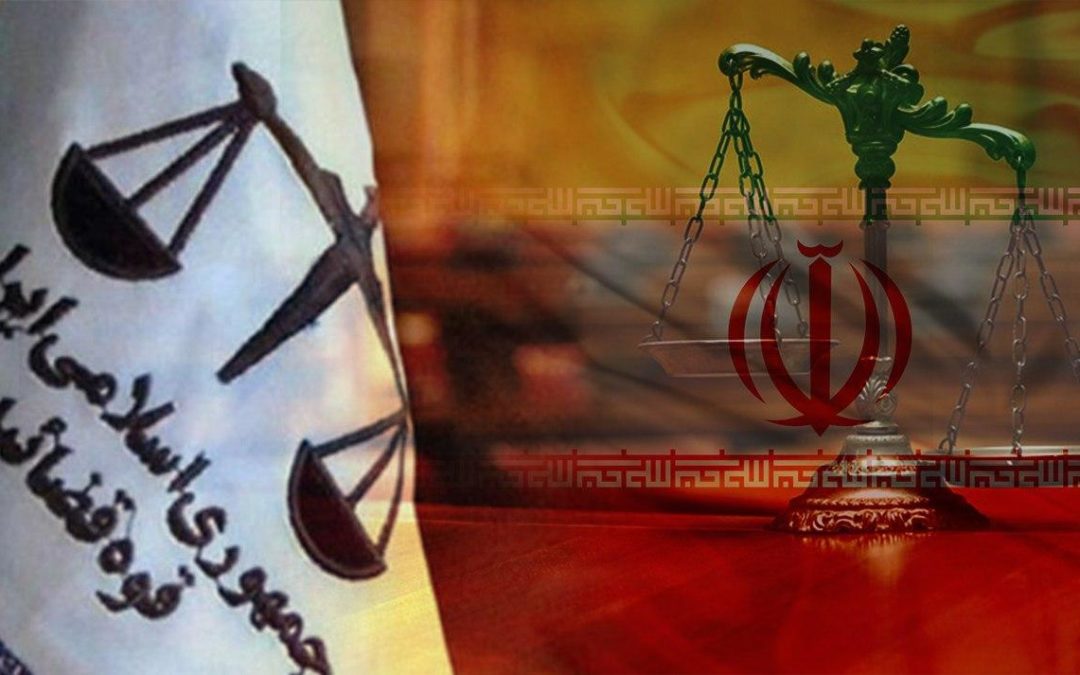IOPHR decries the lack of independence of Iran’s judiciary, and its collaborations in human right violations of the Iranian Regime, despite the provisions within the Iranian Constitution requiring the Judiciary to uphold individual and social rights.
Especially, as the actions of the Iranian Judiciary are in total opposition to Article 150 of the current Iranian Constitution, which declares that the judiciary must be an independent body, which upholds individual and social rights, and is thus responsible for safeguarding justice in society. Moreover, paragraph three of the same article also defines one of the basic duties of the judiciary namely, preservation of public rights and promoting legitimate freedoms. All of which are consistently ignored by the Iranian Judiciary.
Furthermore, according to Article 168 of the Constitution, the investigation of all political and national security crimes must be held in public, and take place in the presence of a jury in the courts of justice. Which is also completely ignored by the current judiciary system in Iran.
Another interesting, and overlooked point, which the Iranian Judiciary violates consistently is that according to Article 166 of the Constitution, all court rulings must be reasoned and documented in accordance with the law, and the principles on which the verdict was issued. So that there is clarity in regards to the verdict issued by a judge in terms of Jurisprudential standards, and the judge’s interpretation of religious, and jurisprudential standards are not against or in violation of the constitution, unless those standards have already been approved by the country’s laws.
Yet, unfortunately a quick glance at the history of the Iranian judiciary over the past thirty years shows that not only the Iranian judiciary has not acted to achieve the goals defined in the Constitution, but also has not taken the slightest step to safeguard the individual, and social rights of Iranians. As it has always acted as the iron fist of the religious dictatorship that rules Iran, by guarding the interests of a small faction that control Iran, that makes up less than one percent of the country’s population.
In order for one to see proof of this point, one simply needs to look at the below list of calamities that have occurred, as result of the strong arm tactic of the Iranian Judiciary to oppresses the people of Iran:
- Iran has the highest execution rate in the world per capita.
- Iran has the largest number of judicial national security lawsuits in the world per capita.
- Iran has the largest number of imprisoned journalists in the world
- Iran is the largest violator of women’s rights.
- Iran is the only country in the world where lawyers are imprisoned for their professional activities.
- Iran is the only country in the world that officially records and recognises child marriage.
- Iran is the only country in the world that has through establishing special clerical courts, has created different tier or class citizens.
- Iran is one of the largest violators of religious freedom in the world
- Iran is the only country in the world where people of different religions are not equal before the law (as its laws freely allow religious discrimination).
- Iran is the only country in the world that discriminates between men, and women in enforcing punishments (gender discrimination)
- Iran is the only country in the world in which the judiciary has been directly involved in the massacre of political prisoners. Where in other similar cases around the world, it has prominently been the military, security forces, and ultimately the executive branch that have been responsible for massacres and genocides.
It should be noted that although genocide has unfortunately taken place in other parts of the world, Iran is the only country in the world whose ruling system, during peacetime, especially the judiciary, under predetermined plan, deliberately, systematically, and through official channels and with the full awareness has conducted such activities. All this has taken place with full awareness of the officials, and the leaders of the system, and there is even evidence of allocation of the approved budget, for implementation of various extermination projects.
The bitter point of this story is that the people who are killing the youth of Iran today, are the same people who decades earlier had imprisoned mothers and fathers of these youth, and on occasions massacred them after, or before the end of their prison terms.
Unfortunately, the recent spree of death sentences, and executions of political prisoners all of which are in violation of Article 152 of the Iranian Constitution, which states the Judiciary should uphold individual, and social rights and be responsible for achieving justice in society, only goes to show the brutality of the Iranian regime.
Given that the internal justice system in Iran is either completely corrupt, or in the service of a corrupt religious dictatorship, the IOPHR would like to raise the awareness of all international governments and bodies, especially human rights defenders, and international human rights organisations to these atrocities. Especially, since the judicial body, which been entrusted with the task of supporting individual and social rights by the Iranian constitution, is clearly acting in a way that not only violates human rights of Iranian citizens, but it is also systematically oppressing Iranians in order for the elite in the regime to retain power.
Sadly executions of young people, and adolescents in Iran are now so common that unfortunately the Iranian society has lost its sensitivity in this regard. Particularly, since the recent executions in Kurdistan and Khuzestan, clearly show the blatant, and uncontrollable force of oppression of the Iranian judiciary.
The IOPHR would also like to draw the international attention to the dangerous situation of three young Iranians, who have been sentenced to death simply for peacefully protesting the high price of gasoline, and who have been denied the right to a lawyer at all stages of their legal proceedings.
The IOPHR would also like to take this opportunity to, once again, draw the attention of the world to the dangerous situation of Mr. Ruhollah Zam, a journalist who was abducted during a legal visit to Iraq and transferred to Iran in a completely mysterious manner. And point out that Mr. Zam has been sentenced to death solely because of performance of his professional duties as a journalist. Moreover, while increasing pressure on the Iranian authorities to overturn all death sentences, including the death sentence of Mr. Zam, the international community should also call on Iraq to clarify how Mr. Zam was abducted, and transferred to Iran.
In conclusion, given all the above, the IOPHR calls for the establishment of an international fact-finding committee to investigate, and expose as many corrupt and illegal practices of the Iranian judiciary as possible, and its role in propagating the human rights violations of the Iranian regime. Furthermore, the IOPHR asks the international community to impose diplomatic sanctions on members of the Iranian Judiciary, and restrict their access to democratic counties in Europe and other regions.

